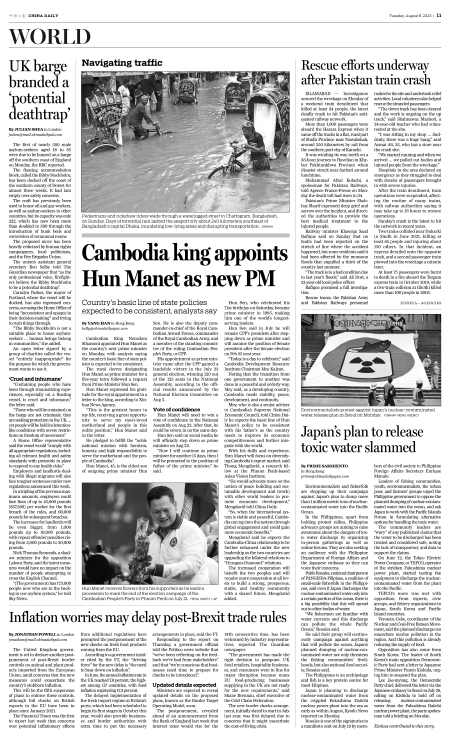The United Kingdom government is set to declare another postponement of post-Brexit border controls on animal and plant products imported from the European Union, amid concerns that the new measures could exacerbate the country's stubborn inflation.
This will be the fifth suspension of plans to enforce these controls, although full checks on British exports to the EU have been in place since January 2021.
The Financial Times was the first to report last week that concerns over potential inflationary effects from additional regulations have prompted the postponement of the new checks on fresh food products coming from the EU.
According to a government insider cited by the FT, the "driving force" for the new delay is "the need to bear down on inflation".
In June, the annual inflation rate in the UK reached 7.9 percent, the highest among G7 countries, with food inflation registering 17.3 percent.
The delayed implementation of the fresh import regime at Britain's ports, which had been scheduled to begin its first stages in October this year, would also provide businesses and border authorities with extra time to put the necessary arrangements in place, said the FT.
Responding to the report on Thursday, a government official told the Politico news website that "we've been reflecting on the feedback we've had from stakeholders "and that "we're conscious that businesses need time to prepare for checks to be introduced".
Updated details expected
Ministers are expected to reveal updated details on the proposed plans, known as the Border Target Operating Model, soon.
The postponement, revealed ahead of an announcement from the Bank of England last week that interest rates would rise for the 14th consecutive time, has been welcomed by industry representatives, reported The Guardian newspaper.
"The government has made the right decision to postpone. UK food retailers, hospitality businesses, and consumers were in line for major disruption because many EU food-producing businesses supplying to the UK are not ready for the new requirements," said Shane Brennan, chief executive of the Cold Chain Federation.
The new border checks arrangement, initially slated to start in July last year, was first delayed due to concerns that it might exacerbate the cost-of-living crisis.
jonathan@mail.chinadailyuk.com

